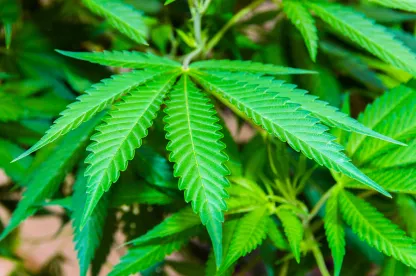The 2018 Farm Bill
By removing industrial hemp from regulation under the Controlled Substances Act, the 2018 Farm Bill has garnered lots of excitement within the industry. The bill – expected to be signed by President Trump before year’s end – gives the Department of Agriculture authority over industrial hemp and gives states the autonomy to regulate the industry within their respective boarders.
A key provision of the 2018 Farm Bill makes clear that nothing in the bill “preempts or limits any law of a State or Indian tribe that regulates the production of hemp and is more stringent than this subtitle.” States that wish to have primary regulatory authority over hemp production must submit plans to the Secretary of Agriculture detailing how it will regulate the crop. States also may maintain a prohibitionist posture on the cultivation of hemp. For any state that neither affirmatively regulates nor bans hemp cultivation, federal regulations to be created by the Department of Agriculture will apply.
The initial excitement has caused many to overlook the fact that the 2018 Farm Bill does not change the Food and Drug Administration’s (FDA’s) authority to regulate CBD. The bill expressly states “nothing in this subtitle shall affect or modify … the authority of the Commissioner of Food and Drugs … under the Federal Food, Drug, and Cosmetic Act [FDCA] … to promulgate Federal regulations and guidelines that relate to the production of hemp.”
Because the FDA interprets the FDCA as prohibiting the introduction into interstate commerce any food or dietary supplement to which CBD has been added, the FDA will continue its regulatory oversight of CBD products intended for human consumption.
NY Restricts CBD-Infused Food and Beverages, Allows CBD in Dietary Supplements
In the wake of the 2018 Farm Bill, New York quietly updated its position on CBD by creating a new license category for processing CBD and by issuing a FAQ that restricts CBD-infused food and beverage products. The deadline to submit CBD-related applications to the New York State Department of Agriculture and Markets is December 28, 2018.
The new guidance bans the manufacture and sale of ready-to-eat food with CBD infusions or CBD extracts, such as CBD chocolate syrup, CBD soda and CBD-infused frosting-drizzled cookies. Rather, any CBD product intended for human consumption must (1) be produced under accepted dietary-supplement standards and (2) be properly labeled and packaged for sale under FDA regulations for dietary supplements. Licensees intending to sell or distribute CBD dietary supplements in anything other than pill or tincture form must obtain the Department of Agriculture and Market’s prior written approval for each product it proposes to sell or distribute.
New York recognizes that its position is contrary to the FDA’s position that CBD products are excluded from the definition of dietary supplements. Accordingly, the state now requires all CBD processor licensees to sign a CBD processing agreement acknowledging the contradictory positions and the inherent risk associated with processing CBD for human consumption.
The CBD processing agreement also requires licensees to follow the product testing guidelines set forth in New York’s medical marijuana regulations for any CBD product intended for human consumption. Similarly, CBD products intended for human consumption must comply with stringent new labeling and notice requirements.
Read together, the new FAQ and CBD processing agreement forecast New York’s intent to strictly regulate CBD products intended for human consumption. As the industry moves forward, the Department of Agriculture and Markets has made clear that it will promulgate additional regulations for CBD products derived from industrial hemp. The Department also indicated that it might require businesses that sell CBD products to register with the Department. Industry members already processing and selling hemp-derived CBD products as well as those looking to enter the market should seek guidance on the quickly evolving regulatory environment.



 />i
/>i

